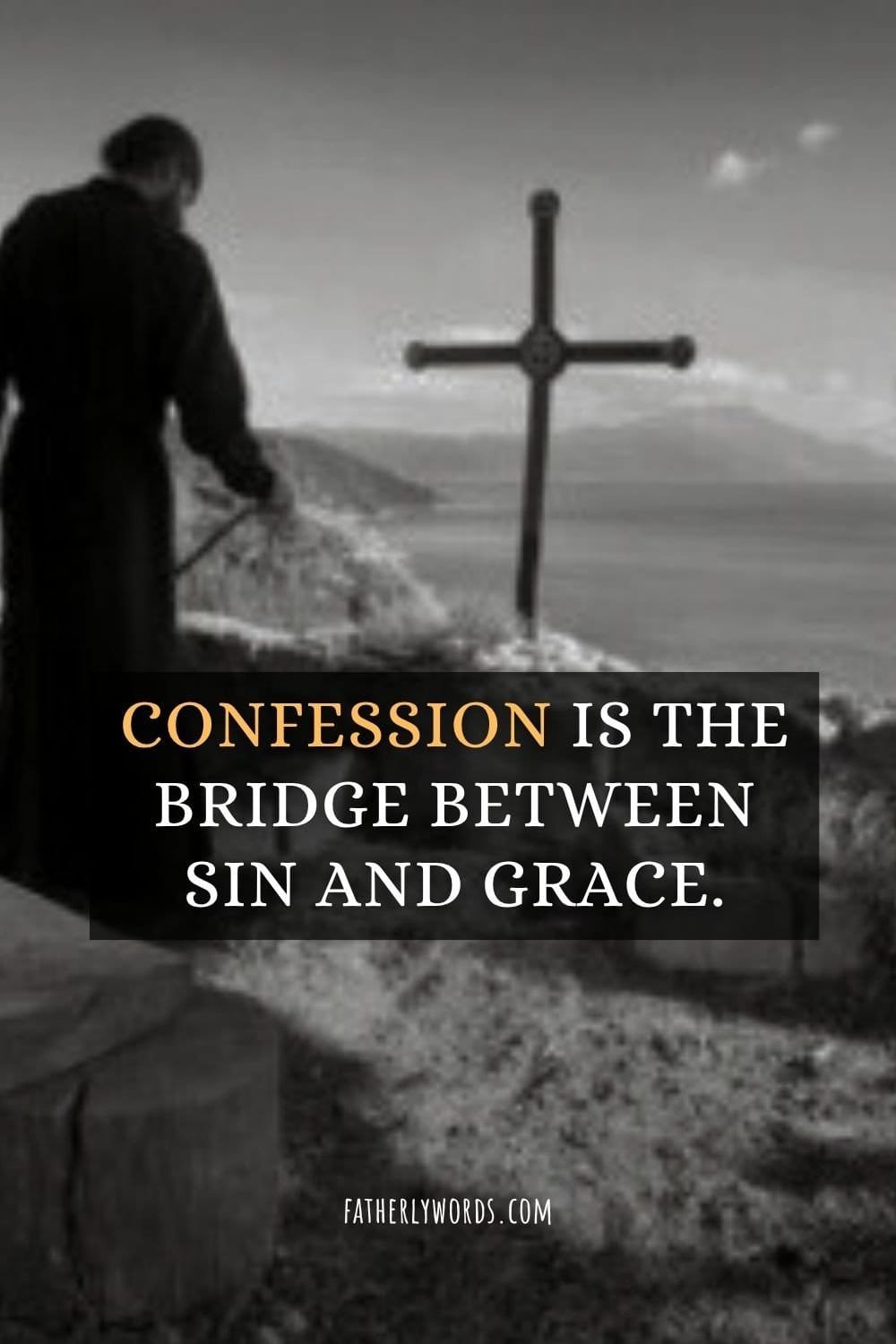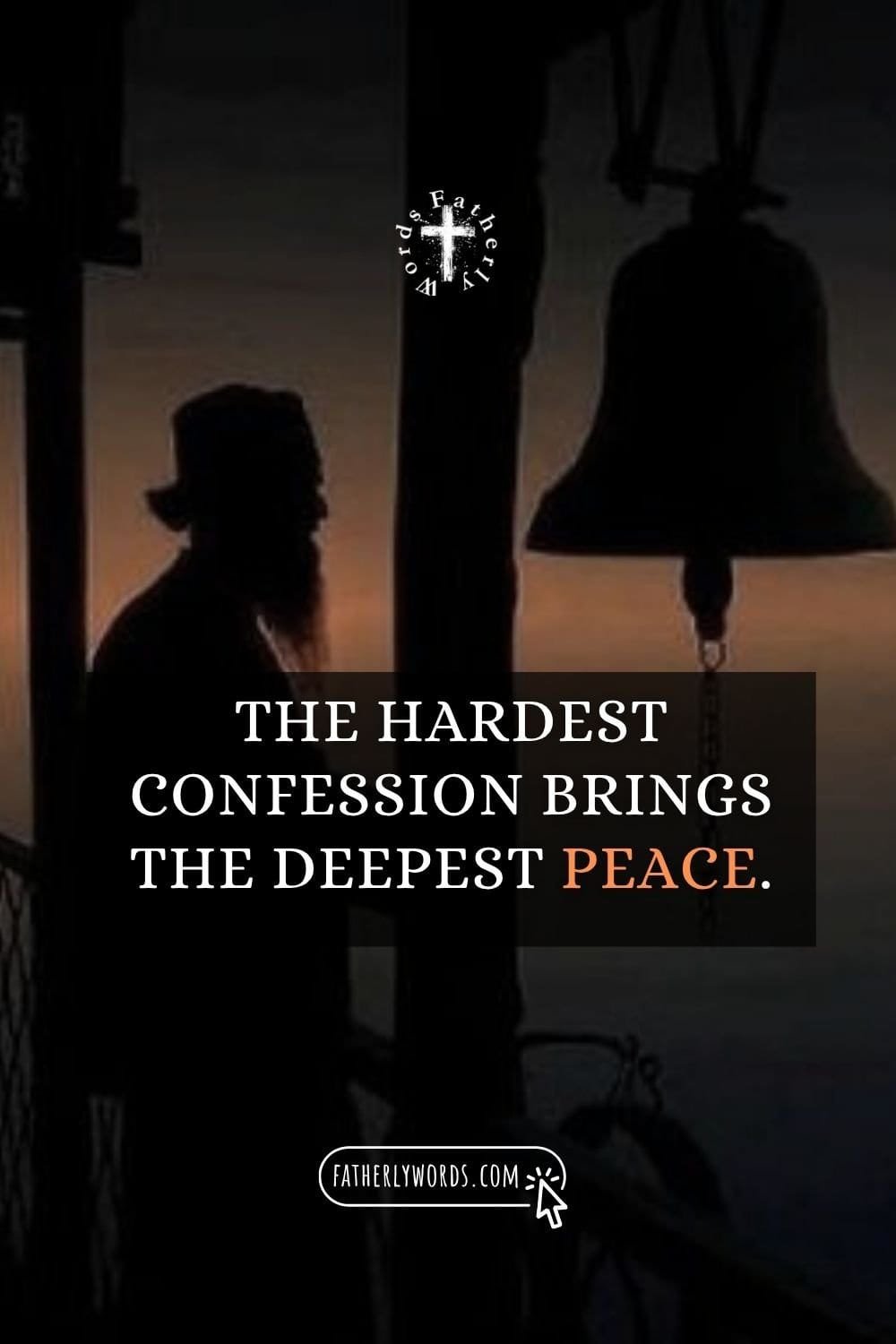In every age, the Church calls her children to repentance, yet in our time, the call often goes unheard.
Confession, once the beating heart of Orthodox Christian life, has become neglected by many. The faithful approach Holy Communion but forget to cleanse their souls first.
This neglect of confession is not a small matter. It is a symptom of spiritual sickness that threatens the very life of the soul.
Christ Himself commanded repentance as the first step into His Kingdom:
“Repent, for the Kingdom of Heaven is at hand.”
Matthew 4:17
Without repentance, there can be no forgiveness, and without confession, there can be no true repentance. The path to salvation narrows when pride, ignorance, or indifference keep the Christian from approaching the Mystery of Confession.
The Silence of the Soul
There was a time when every Orthodox Christian prepared for the great feasts by first confessing his sins. The Church’s life revolved around repentance.
Today, that silence of the soul has spread like a shadow across the Christian world. In many parishes, only a small fraction of believers come to confession.
Some say they have nothing to confess. Others are ashamed or afraid. Some do not believe in the Mystery at all.
But when the soul stops confessing, it stops breathing. Sin, unconfessed, does not disappear; it hardens the heart. The Prophet David understood this when he cried:
“When I kept silent, my bones waxed old through my groaning all the day long.”
Psalm 31:3 (LXX)
The soul that does not confess ages inwardly. It loses its freshness and peace.

The Roots of Spiritual Neglect
The Fathers of the Church teach that every sin has a root. The neglect of confession has many. Among them are ignorance, slander, scandal, spiritual laziness, and above all, pride.
Ignorance keeps many away because they do not understand what confession is. They imagine it as a ritual of fear or a private judgment.
Others avoid it because they have seen bad examples. Priests who lacked gentleness or believers who confessed without repentance. These human failings discourage them, but they do not erase the truth of the Mystery.
Still others are indifferent. The noise of modern life, the endless distractions, and the pursuit of comfort drown out the voice of conscience. The modern Christian forgets that the soul needs cleansing as much as the body. Just as one cannot live without washing, one cannot live spiritually without confession.
The Hidden Tyrant of Pride
Above all causes stands pride. Pride whispers that confession is unnecessary, that our sins are small, that we are “good people.”
But no one enters Heaven by being good in his own eyes. The Lord said clearly:
“Everyone that exalts himself shall be humbled; and he that humbles himself shall be exalted.”
Luke 18:14
Confession requires humility, the willingness to kneel before God and admit our failings. That is why the proud avoid it. The humble soul, however, finds joy in repentance. Pride closes the door to Paradise; humility opens it.
Saint John Climacus wrote:
“Pride is the loss of divine grace. The beginning of humility is the confession of one’s weakness before God.”
To confess is to acknowledge our dependence on divine mercy. The proud heart cannot do this easily; therefore, many stay away from the spiritual physician.
When the Mystery Becomes Unloved
It is a strange paradox that the most healing Mystery in Orthodox Christianity has become the most feared. Baptism, marriage, and communion are approached with joy, yet confession, which prepares the soul for all others, is often neglected.
Saint John Chrysostom once lamented:
“When you sin, the devil rejoices. When you confess, he weeps. Therefore, he tries with all his might to keep you from confession.”
Indeed, this neglect is not simply human forgetfulness. It is spiritual warfare.
The enemy knows that confession destroys his hold on the soul. He whispers to the Christian: “You are fine. You don’t need confession. You can confess directly to God.” But such thoughts isolate the soul from the life of the Church and from the grace that flows through the priest’s absolution.
The Decline of Spiritual Awareness
Modern Christianity has become external. Many believers attend liturgy but remain strangers to repentance.
They may fast or make the sign of the Cross, yet they have never truly laid their hearts bare before God. They live as if holiness were a distant mountain rather than a path to be walked daily.
This decline is not new, but it has deepened in our generation. Secularism teaches that sin is a private matter, or worse, an outdated concept. When the sense of sin disappears, confession becomes meaningless. Yet the reality of sin does not vanish because people stop believing in it. The sickness of the soul remains, even if it is denied.
Psalm 50, LXX reminds us:
“Behold, I was conceived in iniquities, and in sins did my mother bear me.”
Psalm 50:5
Every person needs repentance. To deny this is to deceive oneself.
The Excuses We Tell Ourselves
“I have no time.”
“I have no serious sins.”
“I am too ashamed.”
“I confess directly to God.”
“I’ll do it later.”
These are the words that echo in the heart of the modern Christian. Yet behind them lies spiritual paralysis.
Time is always found for everything else. Shame is a sign of conscience, not a barrier. Private confession to God, while necessary in prayer, is not the Mystery Christ gave to His Church.
Saint Nicodemus the Hagiorite wrote:
“The devil has two traps: first, to make you not confess; second, to make you confess without repentance.”
True confession is both honest and humble. It requires courage to reveal one’s wounds before God and His priest. But that courage leads to peace.
The Tragedy of the Unconfessed Christian
What happens when a Christian lives without confession? Slowly, the conscience hardens.
Prayer becomes mechanical. The heart loses warmth. The person begins to justify his sins rather than repent for them. This spiritual dryness leads to despair or hypocrisy.
Saint Isaac the Syrian warns:
“When a man ceases to reproach himself, the grace of God departs from him.”
The unconfessed soul becomes closed to grace. It may still attend church, still perform rituals, but the inner flame fades. Such a life is like a lamp without oil.
The Orthodox Church, however, never despairs of anyone. The doors of repentance are always open. Even a single confession made with tears can restore the soul to light.
The Power and Joy of True Confession
When a person finally confesses sincerely, an invisible resurrection takes place. The weight of years is lifted. The mind becomes clear, the heart lighter. Many have said that after confession they felt as though they were breathing for the first time.
The Lord promises:
“There shall be more joy in heaven over one sinner that repents, than over ninety-nine just persons who need no repentance.”
Luke 15:7
Confession is not an act of humiliation but of liberation. The penitent leaves the confessional not broken but renewed. This joy is the secret strength of the Orthodox Christian life. It is the spring of peace that keeps faith alive.
The Role of the Spiritual Father
In Orthodox Christianity, confession is inseparable from spiritual guidance. The priest is not merely a listener but a father who leads the soul through repentance toward Christ. His role is both gentle and demanding. He is to be discreet, compassionate, and truthful.
Saint Symeon the New Theologian said:
“Blessed is the soul that has found a spiritual father who can heal her wounds with the oil of mercy and the wine of discipline.”
For confession to bear fruit, there must be trust and continuity. A single confession is good, but regular confession builds a lifelong relationship with God. Through this rhythm of repentance, the soul matures in humility and love.
Modern Views Versus Orthodox Christianity
- The world teaches self-confidence; Orthodox Christianity teaches self-examination.
- The world says shame is harmful; Orthodox Christianity sees it as the doorway to humility.
- The world believes guilt should be ignored; Orthodox Christianity transforms guilt into repentance.
- The world claims there is no sin; Orthodox Christianity reveals sin as the sickness of the soul.
- The world offers therapy; Orthodox Christianity offers healing through grace.

- The world values pride; Orthodox Christianity blesses humility.
- The world says everyone is fine as they are; Orthodox Christianity says everyone is called to holiness.
- The world forgets eternity; Orthodox Christianity lives for eternal life.
- The world replaces repentance with self-acceptance; Orthodox Christianity restores the image of God in man.
- The world teaches comfort; Orthodox Christianity teaches transformation.
The Call to Return
The Church continually calls her children to confession, especially during the fasting seasons. But the invitation is not limited to Lent or feasts. It is for every day of life. As long as the heart beats, there is time to repent.
Psalm 94 (LXX) exhorts:
“Today, if you will hear His voice, harden not your hearts.”
Psalm 94:8
There is no tomorrow in repentance. The time is now. The Lord stands at the door and knocks, waiting for the soul to open through confession.
Imagine a spring of clear water on a mountain. All who come thirsty may drink freely, yet many walk by, dying of thirst. Such is the Mystery of Confession. Its waters are available, but few draw from them.
The Healing of the Heart
Confession is not only for great sins. It is also the medicine for small wounds, for impatience, for anger, for the thousand thoughts that cloud the soul.
The Orthodox Christian who confesses regularly learns self-knowledge. He becomes more compassionate toward others because he knows his own weakness.
Saint Porphyrios of Kavsokalyvia said:
“Confession is not a court. It is a place of healing. The confessor is a loving physician who rejoices with your return.”
Through this healing, relationships are restored, marriages are strengthened, and communities find peace.
Confession is not merely personal—it renews the entire Body of the Church.
The Freedom of the Penitent
There is no greater freedom than to be forgiven. The world promises freedom through independence, but true freedom is the liberation from sin.
The Orthodox Christian who confesses is no longer bound by the chains of his past. He walks with Christ, who said:
“Come unto Me, all ye that labour and are heavy laden, and I will give you rest.”
Matthew 11:28
The penitent Christian walks lightly, because he carries no hidden burden. He does not need to pretend. His conscience is clear. His heart becomes a dwelling place of peace.

How Parents Can Explain Confession to Children
Parents can teach confession simply. They may say:
“When you tell the truth about what you did wrong, you open your heart so that Christ can make it clean again. The priest listens for Jesus, who forgives you and helps you start fresh.”
Children can understand that confession is like washing dirty hands. Just as we cannot eat with unwashed hands, we cannot receive Holy Communion with an unwashed soul.
Teach them that confession is a gift, not a punishment—a way to be close to Christ, who loves us and never turns us away.
Dive Deeper: